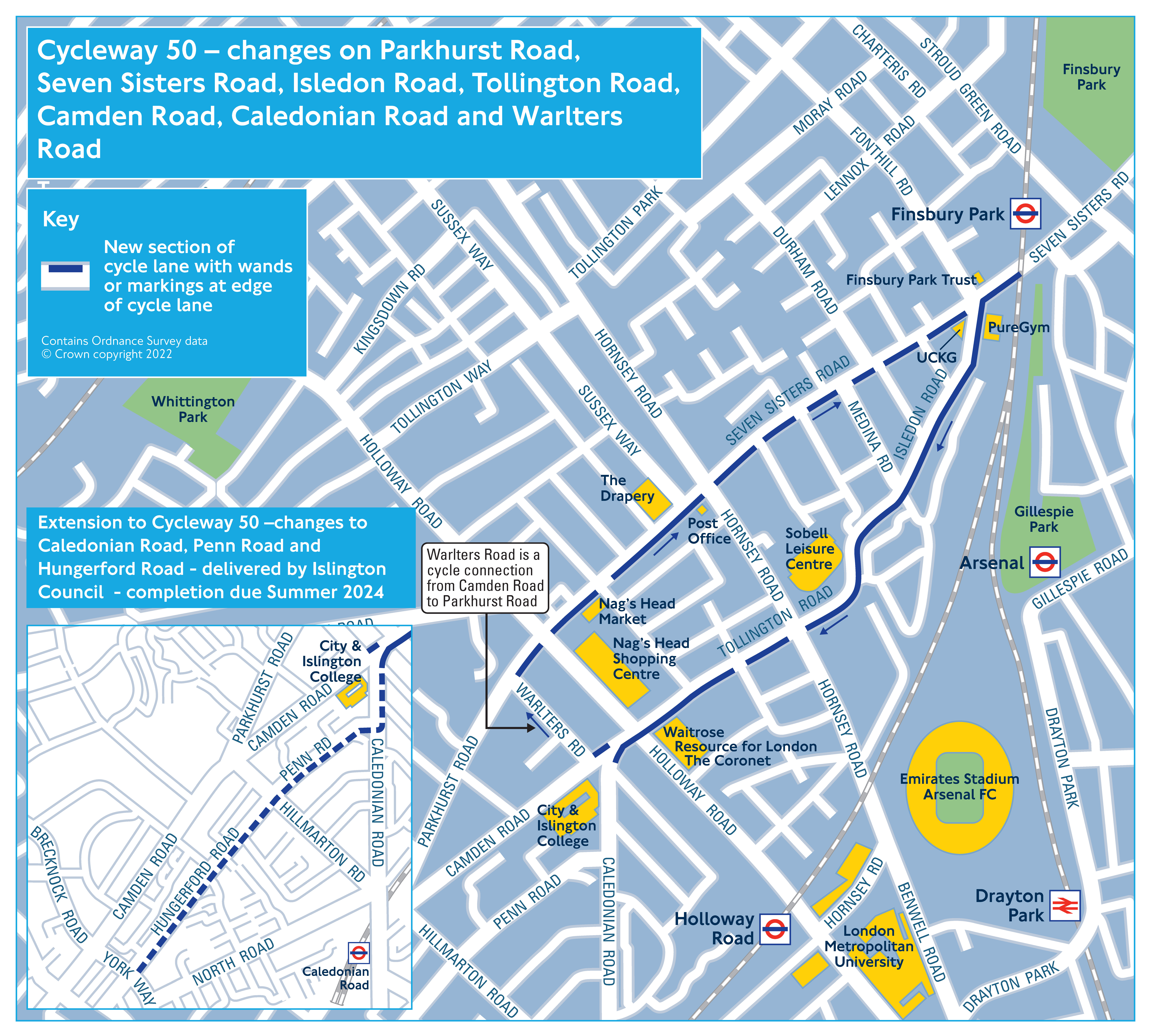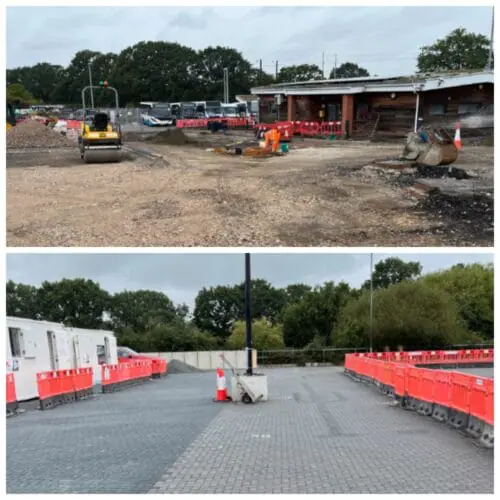Enhancing pedestrian and cyclist safety across Islington

Project Overview
Transport for London’s (TfL) London Streetspace Plan (LSP) includes the Cycling Future Route 2 (CFR2) initiative, which focuses on enhancing pedestrian and cyclist safety along three roads in the London Borough of Islington. Metis collaborated closely with Eurovia Contracting to develop detailed design solutions, by conducting thorough design reviews, creating precise drawings and specifications, and obtaining necessary approvals. The project’s objectives include reducing congestion, improving air quality, and enhancing road safety, all while demonstrating tangible benefits for London’s transport network.
The Opportunity
Enabling more people to walk and cycle is crucial for creating a healthier and more sustainable transport network for all Londoners. However, an ageing infrastructure has made this difficult. As part of TfL’s LSP, CFR2 seeks to deliver a segregated-with-flow cycle track, along with other improvements such as new and upgraded pedestrian crossings, lower speed limits and enhanced public realm and bus infrastructure along Seven Sisters Road, Isledon Road, and Tollington Road.
This project is part of the new section of Cycleway 50, the first in a major new corridor of safer walking and cycling infrastructure that will significantly enhance London’s expanding network of high-quality cycleways.
To undertake this work, TfL appointed Eurovia Contracting (Eurovia) as the design and build contractor through their Surface Transport Infrastructure Construction Framework (STIC), with Metis serving as the designer.
The Solution
Metis collaborated closely with Eurovia and TfL to develop the concept design into a functional scheme. This involved:
- A design review of the TfL concept design and production of a revised general arrangement.
- Identification of additional investigations needed to inform the detailed design
- Compilation of the Manual of Contract Documents for Highway Works (MCHW) series drawings, along with design decision logs and project specifications.
- Engagement with necessary TfL departments to attain technical approval of the detailed design for construction.
- Providing responses to and amending design based on Stage 2 Road Safety Audit.
- Supporting Eurovia in their role as Principal Designer, producing a designer risk register, and contributing to the pre-construction information.
Our detailed design approach involved developing a comprehensive plan covering various aspects of the project based on the available survey information, including:
- 3D modelling for drainage design and setting out.
- Layouts for site clearance, drainage and ironworks, excavations, pavements, kerbs and paved areas, and road markings and signs.
- Specifications for road pavements, raised tables, kerbing, paving, and service ducting, along with a schedule for road signs.
Throughout the project, our team concentrated on identifying and addressing any safety concerns during the design phase. This ensured that all safety measures were properly implemented and effective before project completion.
The Outcome
The cycle route scheme in London has already demonstrated positive outcomes. For example, it has contributed to enhancing safety at 43 junctions as part of the Safer Junctions Programme.
This initiative is effectively reducing congestion and air pollution while also improving road safety. For instance, the implementation of new advanced stop lines on Seven Sisters Road, near the Fonthill Road junction, allows cyclists to proceed separately from right-turning traffic.
Moreover, the pavement buildouts at various points on Seven Sisters, Isledon, and Tollington Roads have significantly improved pedestrian safety and provided more space for pedestrians to move around. These positive results showcase the success of the cycle route scheme.
Interested in learning more about our work?
Explore some of our other Metis case studies to discover our recent projects. Or, if you’re seeking an experienced and passionate civil and environmental engineering team to partner with on your next project, please get in touch with us today.
PROJECT CONTACT
Matthew Elliman
Highway Engineering Team Lead
E: info@metisconsultants.co.uk
T: 02089480249

CLIENT
Transport for London




